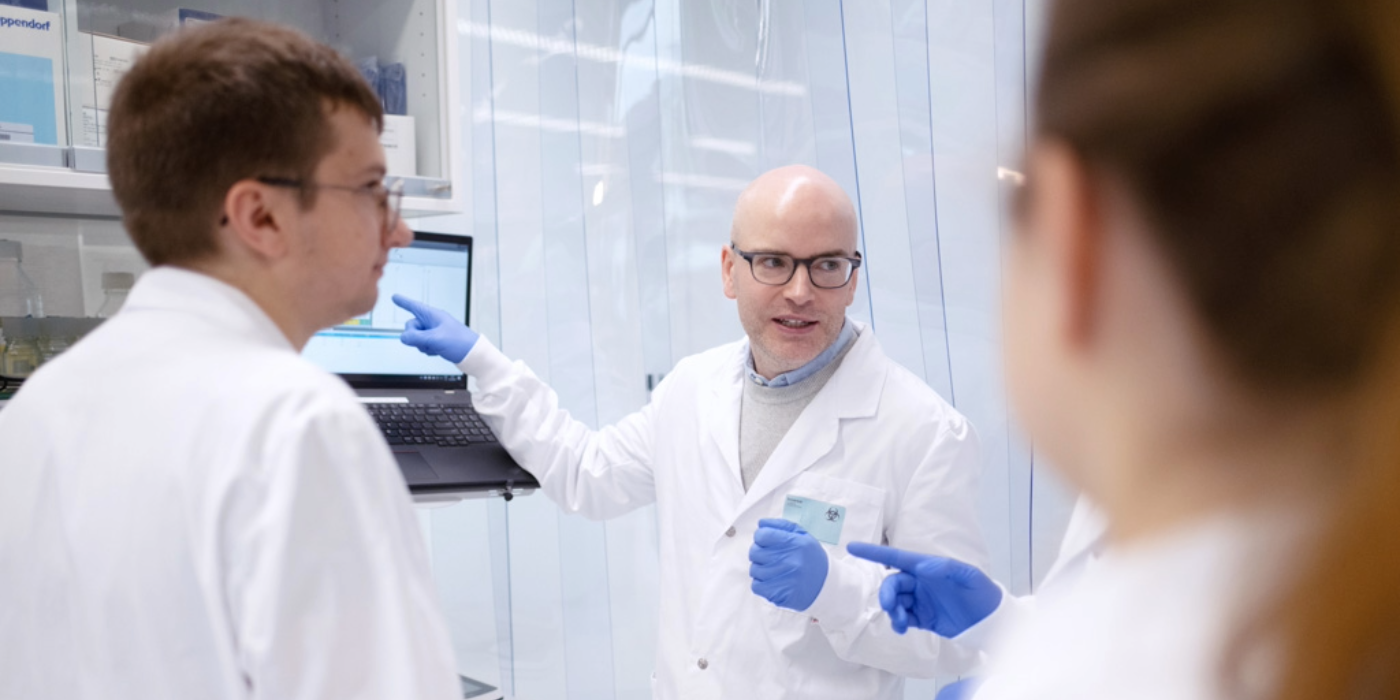Nature Microbiology Article: Revitalising antibiotic research with models mimicking within-patient conditions
The discovery of antibiotics revolutionised modern medicine, but their effectiveness is now jeopardised by the emergence of antibiotic-resistant bacteria. Despite a pressing demand for new antibiotics, no new antibiotic class has been approved for treatment in over three decades. NCCR AntiResist advocates for the creation of in vitro models mimicking in-patient conditions to provide promising avenues for antibiotic research and revitalize future antibiotic discovery and development.
In a Comment article published on 4 January 2024 in Nature Microbiology, the NCCR AntiResist consortium highlights the limitations of standard laboratory assays, which inadequately reproduce the complex physical, chemical, and biological conditions bacteria face within infected patients. As a result, they may miss identifying compounds that could demonstrate efficacy under in vivo infection conditions.
The authors propose advancing antibiotic research by replicating, in vitro, the conditions bacteria encounter within the human body. Constructing and refining in vitro models that mimic patient conditions is guided by comparisons to samples obtained from patients during infection and treatment. Innovative engineering approaches for miniaturisation and parallelisation aim to enhance accessibility and optimise throughput.

The NCCR AntiResist consortium is pursuing this new paradigm in antibacterial strategy by developing micro-tissue infection models which match in vivo conditions
The NCCR AntiResist consortium is pursuing this new paradigm in antibacterial strategy by developing micro-tissue infection models which match in vivo conditions, for bladder, lung, placental tissue and granuloma, as well as body fluid mimetics for four human pathogens. The targeted pathogens are Escherichia coli, Pseudomonas aeruginosa, Staphylococcus aureus, and Brucella melitensis, the first three of which are among the deadliest bacterial pathogens threatening global health.
NCCR AntiResist is confident that by advancing our mechanistic understanding of host-pathogen interactions through such models, we can uncover vulnerabilities in bacterial pathogens and identify new targets for developing antibiotics with novel modes of action. This groundbreaking approach has the potential to reveal previously unseen opportunities for both traditional and non-conventional antibacterial strategies, offering a fresh perspective on combating bacterial infections.
The authors stress that achieving this goal necessitates collaboration among clinicians, biologists, engineers, chemists, and data scientists. Bridging the gap between research, medicine, bioengineering, and industry is crucial for establishing screening infrastructure, conducting clinical trials, and successfully introducing new antibiotics to market. This integrated strategy holds the potential to rejuvenate the antibiotic discovery pipeline and guarantee effective infection control for future generations.
Read on Nature Microbiology » Read-only access »
More about our research » Our mission »

